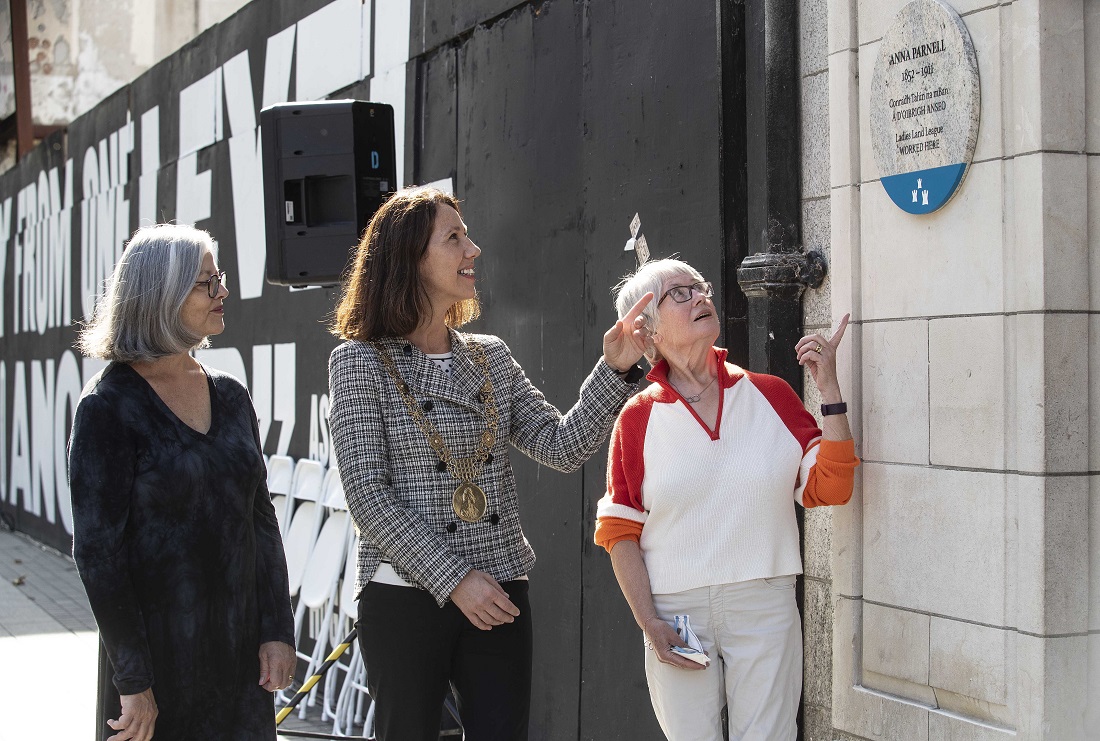Anna Parnell, the founder of the Ladies Land League, has been honoured by a Dublin City Council Commemorative Plaque.
The plaque was unveiled by Lord Mayor Alison Gilliland at AIB Bank, O’Connell Street, Dublin, the headquarters of the Ladies’ Land League in 1881/82.
A feminist and a radical, Anna Parnell was born at the family estate in Avondale, Wicklow, in 1852. The younger sister of Home Rule leader Charles Stewart Parnell, she became organising secretary of the Ladies’ Land League in 1881. Over 500 branches of the ladies Land League were founded, and with the banning of the Irish National Land League in October 1881, Anna Parnell and her female colleagues led the ‘No-Rent’ campaign. Anna travelled around the country, encouraging women to organise independently of men to resist unjust rents.
The Kilmainham Treaty led to the ending of the ‘No-Rent’ campaign, and Charles Stewart Parnell and the National Land League leadership put pressure on Anna and her colleagues to take on a purely charitable role. Anna resisted this and following the dissolution of the Ladies Land League in August 1882, she never spoke to her brother again.
Anna Parnell spent her final years living under a pseudonym in Devon, England, were she died in a drowning accident on 20th September 1911, at the age of 59.
The plaque, unveiled at an event on Monday 20th September, was proposed by retired teacher Lucy Keaveney, who was also the catalyst for the Government-funded restoration of Anna Parnell’s grave in 2017.
Speaking at the unveiling, Lord Mayor Alison Gilliland remarked: ‘Anna Parnell does not feature prominently in the many history books that tell the story of the tumultuous events of 19th century Ireland. That is an omission, and this plaque is a small but significant step in giving her due recognition. At a basic level, this plaque tells people that Anna Parnell worked here; but it does more than that. It tells all who see it that Anna Parnell is worthy of being formally honoured by the City of Dublin, by the people of Dublin, and on our capital’s principal street.’
The decision to erect the plaque was made by the Dublin City Council Commemorations & Naming Committee, whose chair, Councillor Michael Mac Donncha, said: ‘The Commemorative Plaques scheme allows the City to formally commemorate people who have made a significant contribution to the life of Dublin. This is only the fifth of our commemorative plaques to honour a woman, and we hope to see many more such applications in the future’.


